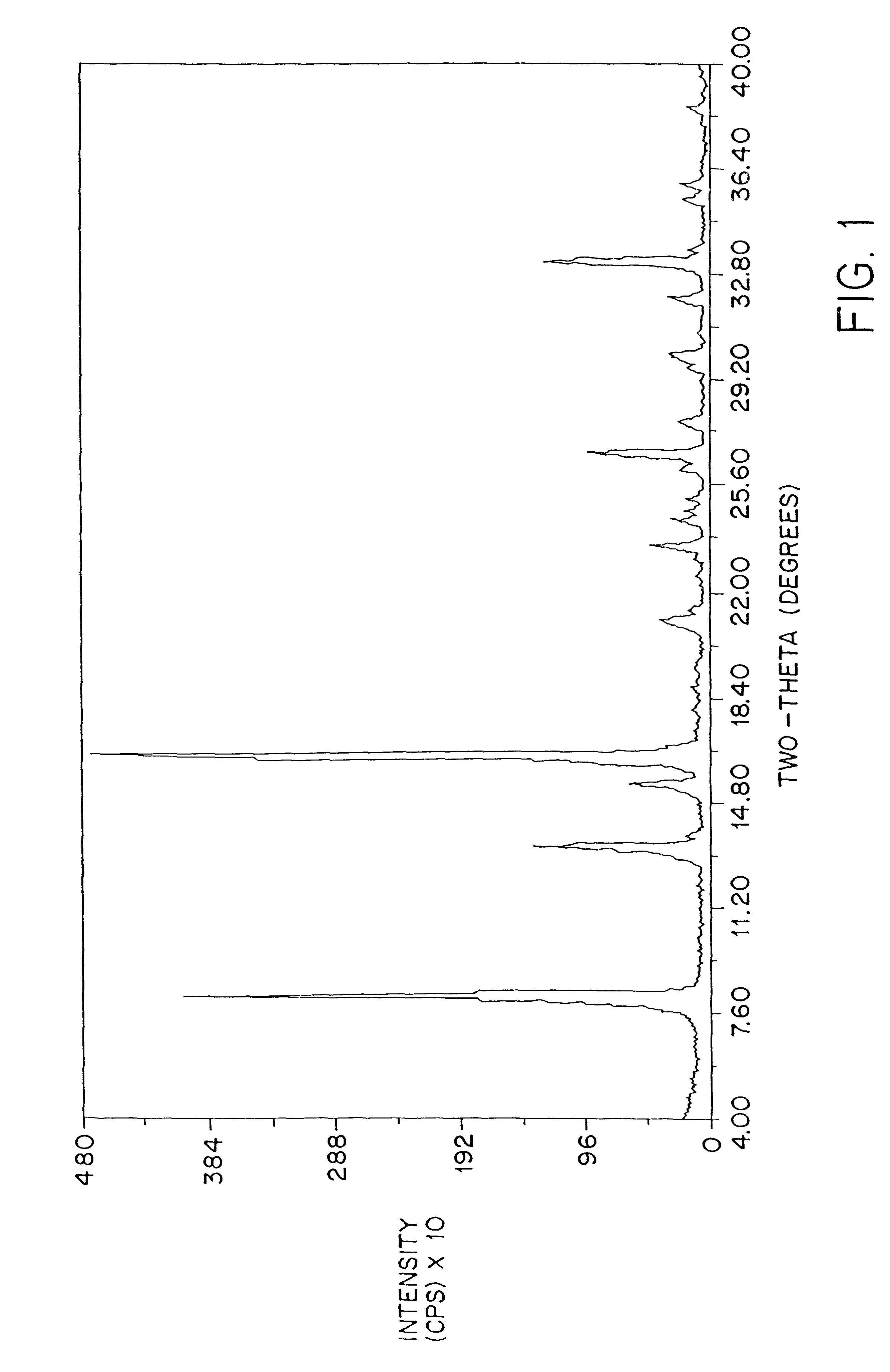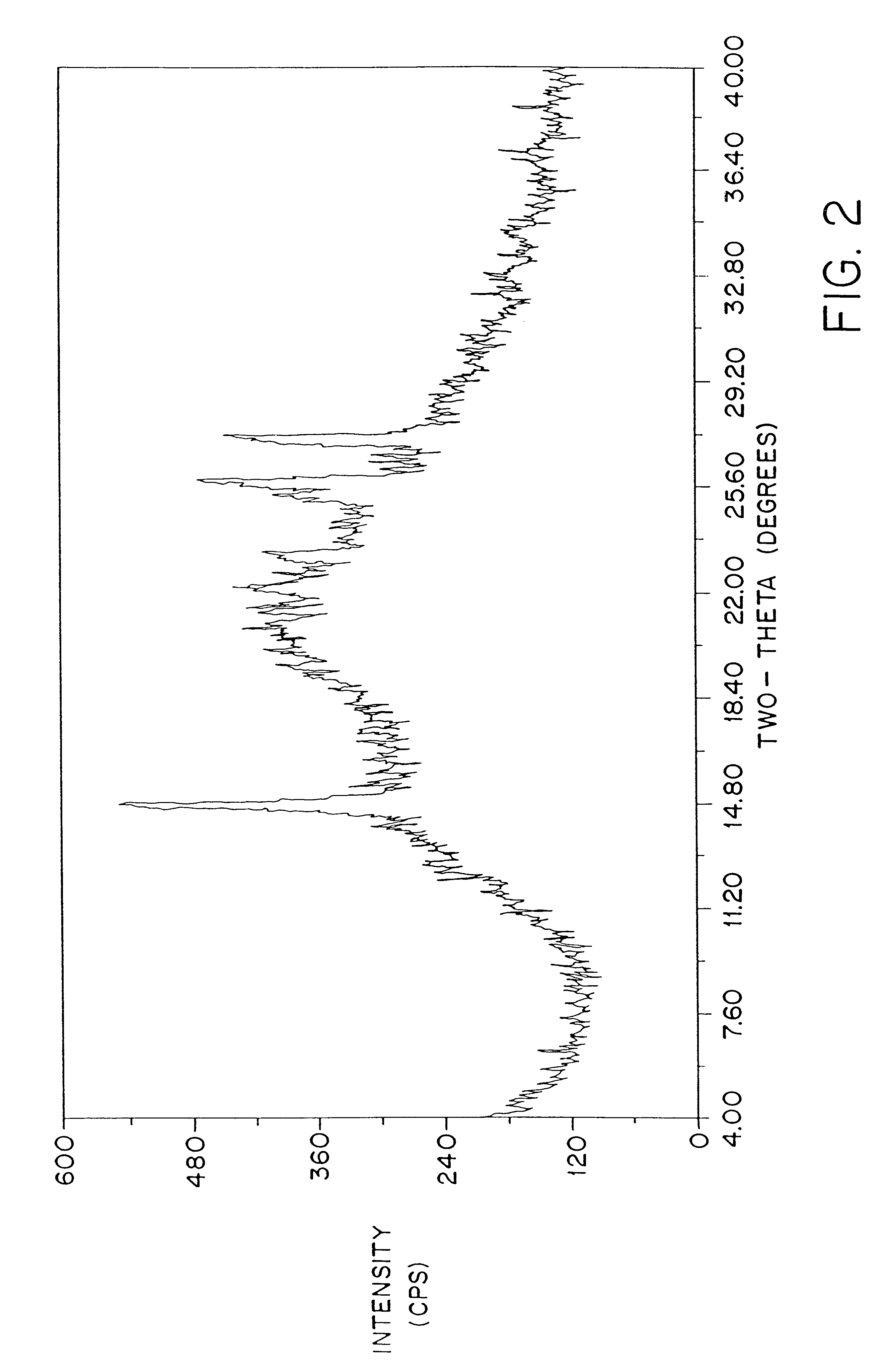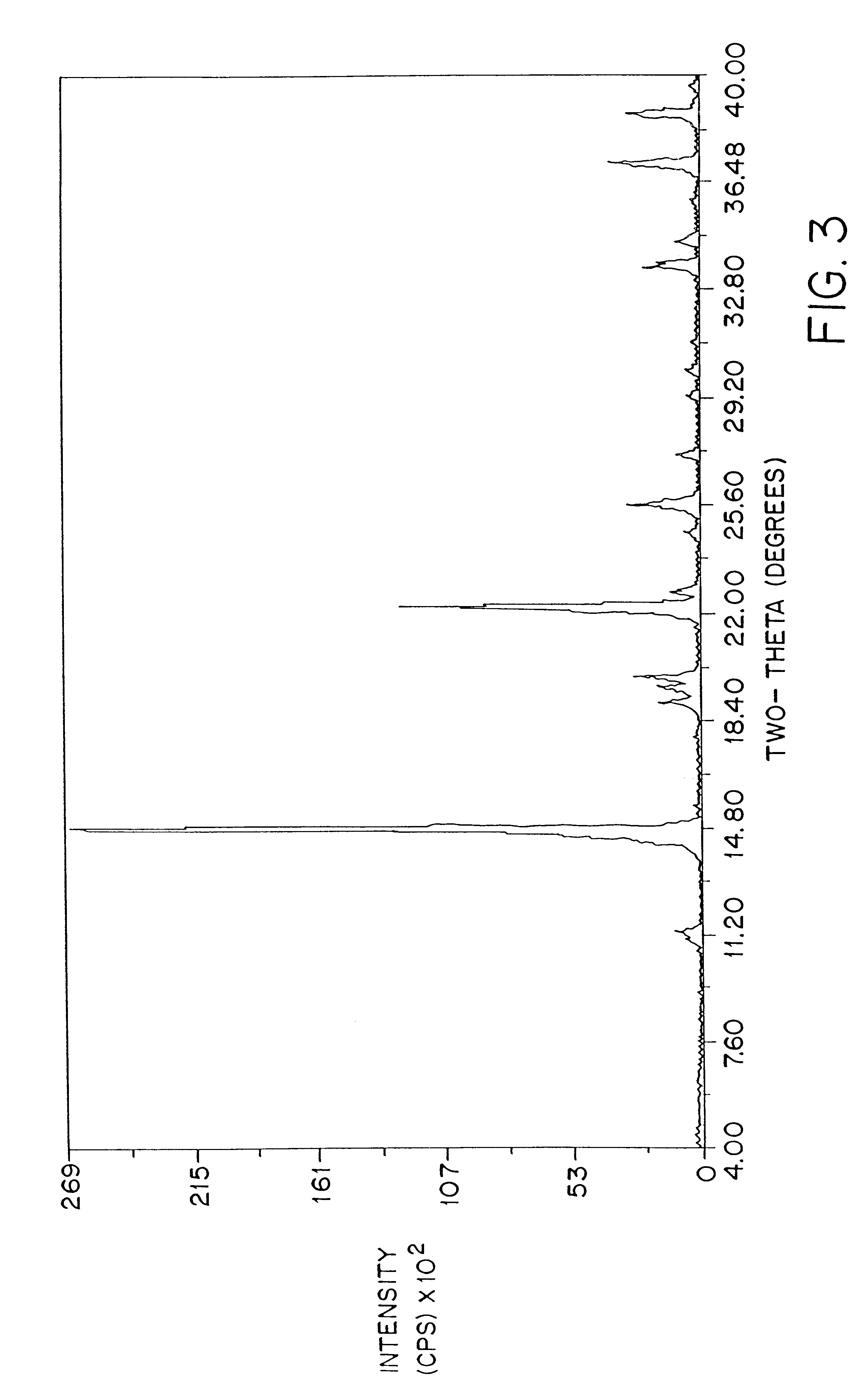Stable amorphous amifostine compositions and dosage form
a technology of amifostine and compositions, applied in the direction of drug compositions, group 5/15 element organic compounds, active ingredients of phosphorous compounds, etc., can solve the problems of not being sterile, other methods that require heating, and not being able to be reconstituted into a pharmaceutical product suitable for human parenteral administration
- Summary
- Abstract
- Description
- Claims
- Application Information
AI Technical Summary
Benefits of technology
Problems solved by technology
Method used
Image
Examples
example 1
5.1. Example 1
Stable Amorphous Amifostine Dosage Form Comprising Nicotinamide
An aqueous solution of 100 mg / mL amifostine and 12.5 mg / mL nicotinamide (Aldrich) is sterile filtered at 25.degree. C. through a 0.2 .mu.m filter, and then divided into 5 mL aliquots, each of which is transferred to 10 mL vials. Lyophilization stoppers are placed on the vials and the samples are loaded onto the freeze-dryer shelf maintained at 5.degree. C. The shelf temperature is decreased to -45.degree. C. over 60 minutes, at which temperature it is kept for about 3 hours. The freeze-dryer condenser is then turned on and chamber is evacuated to about 100 .mu.m Hg. After the chamber vacuum has equilibrated, the shelf temperature is ramped to -25.degree. C. over 60 minutes while the vacuum is held constant. The shelf temperature is held at -25.degree. C. for about 48 hours. The shelf temperature is then ramped to -10.degree. C. over 60 minutes, and then maintained at -10.degree. C. for 24 hours. Finally, th...
example 2
5.2. Example 2
Stable Amorphous Amifostine
An aqueous solution of 100 mg / mL amifostine, 12.5 mg / mL nicotinamide (Aldrich), and 10 mg / mL polyvinylpyrrolidone 30 (PVP30: BASF Aktiengesellschaft, Feinchemie, 0-6700 Ludwigshafen, Germany) is sterile filtered at 25.degree. C. through a 0.2 .mu.m filter, and then divided into 5 mL aliquots, each of which is transferred to 10 mL vials. Lyophilization stoppers are placed on the vials and the samples are loaded onto the freeze-dryer shelf maintained at 5.degree. C. The shelf temperature is decreased to -45.degree. C. over 60 minutes, at which temperature it is kept for about 3 hours. The freeze-dryer condenser is then turned on and chamber is evacuated to about 100 .mu.m Hg. After the chamber vacuum has equilibrated, the shelf temperature is ramped to -25.degree. C. over 60 minutes while the vacuum is held constant. The shelf temperature is held at -25.degree. C. for about 12 hours. The shelf temperature is then ramped to -10.degree. C. over 6...
example 3
5.3. Example 3
Determination of Crystallinity
The crystallinity of the dosage forms of this invention may be determined by powder x-ray diffraction as described, for example, in Remington's Pharmaceutical Sciences, 18.sup.th ed. page 173; The United States Pharmacopeia, 23.sup.rd ed. (1995) pages 1843-1844.
FIG. 2 shows a typical powder x-ray diffraction spectrum of a dosage form of amorphous amifostine prepared according to the method of Example 1 which was measured with a Geiger-Muller detector using nickel-filtered Cu K.alpha. radiation. This diffraction pattern contains the broad baseline characteristic of amorphous material. The peaks at 2.theta..apprxeq.14.8, 25.6, and 26.3 are attributed to nicotinamide and / or noise. This assignment is clear from FIG. 3, which shows the x-ray powder diffraction pattern of crystalline nicotinamide.
FIG. 4 shows the difference between the x-ray diffraction patterns of crystalline amifostine prepared as described by U.S. Pat. No. 5,591,731 and that ...
PUM
| Property | Measurement | Unit |
|---|---|---|
| Fraction | aaaaa | aaaaa |
| Fraction | aaaaa | aaaaa |
| Time | aaaaa | aaaaa |
Abstract
Description
Claims
Application Information
 Login to View More
Login to View More - R&D
- Intellectual Property
- Life Sciences
- Materials
- Tech Scout
- Unparalleled Data Quality
- Higher Quality Content
- 60% Fewer Hallucinations
Browse by: Latest US Patents, China's latest patents, Technical Efficacy Thesaurus, Application Domain, Technology Topic, Popular Technical Reports.
© 2025 PatSnap. All rights reserved.Legal|Privacy policy|Modern Slavery Act Transparency Statement|Sitemap|About US| Contact US: help@patsnap.com



